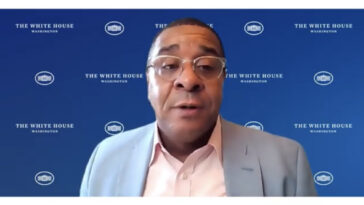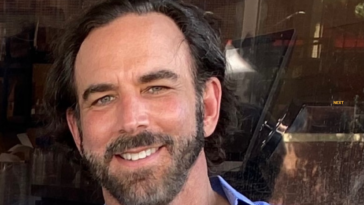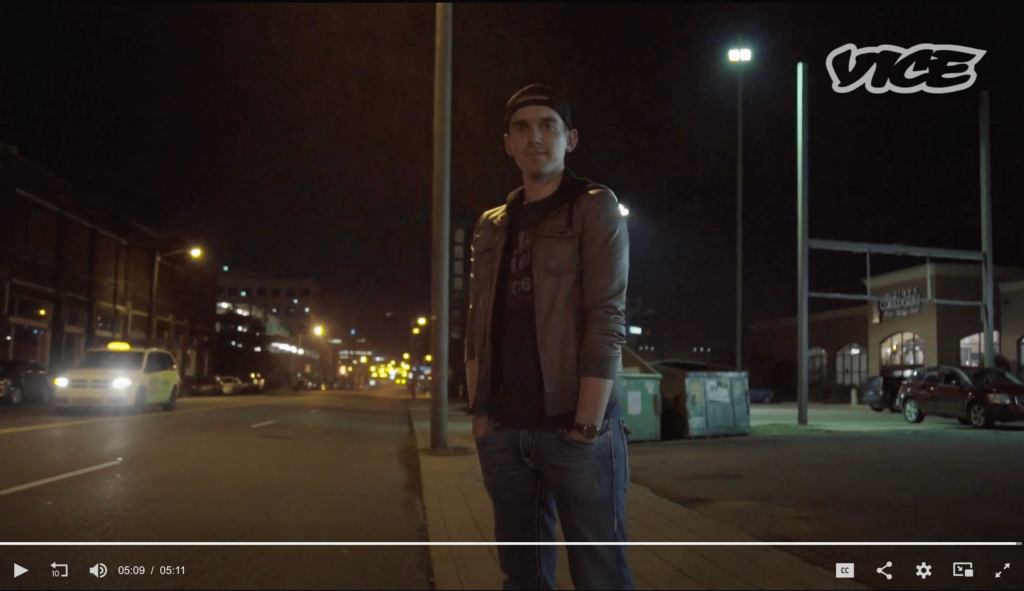Vanderbilt’s Dr. Stephen Raffanti and nurse Beverly Byram share what it was like to work in medicine during the early days of the AIDS epidemic in Nashville.
?? I am so proud to share this story reposted from the NIH website because it features my physician, and basically I just learned how much he’s a boss!!!

In 1994, when Dr. Stephen Raffanti and nurse Beverly Byram first opened the Vanderbilt Comprehensive Care Clinic, a medical home for people living with HIV, their patients died at staggering rates. Today, many of their patients are long-time clients, seeking treatment for diseases of old-age, something they never expected to see. They sat down together to remember patients they’ve lost and to reflect on the amazing power of medical advances.
Transcript
Beverly Byram: I saw my first HIV patient in ’88-89. When they brought him up they said, this guy’s been in a motor vehicle accident, and the surgeon came up to see him after he was in the room and was on his way out the door after telling him that he’d had his spleen removed, etcetera, and said, “Oh, by the way, you have AIDS,” and then walked out. None of the other nurses wanted to work with him at that time and so I went in. We sat there all night long and just talked. And he cried and he was terrified that he was going to die, how was he going to tell his partner. And the rest of the time he was there, I took care of him.
Steve Raffanti: I don’t think any of us have any idea what we were heading into. I remember we opened the clinic in ’94.
Beverly Byram: Mmhmm.
Steve Raffanti: In the first 12 months we lost over 300 people, probably over 350 – so almost a person a day. Remember that?
Beverly Byram: Yeah.
Steve Raffanti: I mean all we did was watch people die. This sort of endless parade of mostly young men dying of AIDS. It was numbing after a while.
Beverly Byram: We were sometimes their only safe place. We would talk to them, we hugged them, in a world where a lot of times no one would touch them or even talk to them. So our goal was to help them die with dignity.
Steve Raffanti: Yeah.
Beverly Byram: I mean, that was the goal because they were all going to die. Our Monday morning staff meetings we would turn the lights out–
Steve Raffanti: Right.
Beverly Byram: –and light a candle and then we would go through the names of all the patients that had died.
Steve Raffanti: That week.
Beverly Byram: That week.
I’ve got lots of memorabilia on a bookcase in my office. One in particular, I’ve got this beautiful paperweight that a patient, his great-grandmother had given it to him and he had his niece drive him down from Kentucky. He had been in hospice for several weeks and he brought that to me wrapped up in a box. And he cut his picture off his driver’s license and taped it to the bottom of the paperweight and he said, “Don’t ever forget me.” And he died the next day. We had lots of patients that came back–
Steve Raffanti: Yeah.
Beverly Byram: –and they could barely get back, but they wanted to come back and say goodbye.
Steve Raffanti: And then you fast-forward how many thousands of patients later, ’95-’96, all of a sudden we were able to treat HIV and then everything changed and it was like a dream come true. I mean, it was amazing – remember those days?
Beverly Byram: Oh yeah.
Steve Raffanti: Our mortality rate in ’96 dropped 93% and has stayed down ever since. You would walk through the hallways of the clinic where all the exam rooms were and some would run out and hug you and say, “Oh, Dr. Raffanti, you can’t believe how well I feel.” You’d have absolutely no idea who they were. Because last time you saw them they were bedbound and weighed like 40 pounds less.
Beverly Byram: Yeah.
Steve Raffanti: And it wasn’t just that they were hanging on. I mean in weeks they would go from being barely responsive to you to being almost normal; you remember that?
Beverly Byram: Mmhmm.
Steve Raffanti: It was like magic and we had that run in ’96 and ’97 where all we did was tell people how good they looked.
Beverly Byram: Yeah.
Steve Raffanti: So what a dramatic contrast, huh?
Beverly Byram: Yeah. I think the thing for me in looking back over my career is that I’ve done something that matters. I’ve touched a lot of lives and my original patient that I saw for the first time in ’88, he’s still my patient. I have made a difference in making this world a better place.
This originally appeared: https://www.nih.gov/about-nih/who-we-are/first-twelve-months-we-lost-over-300-people
![[ IMSTILLJOSH ]](https://imstilljosh.com/wp-content/uploads/2020/09/9A79D7E4-5626-422E-ABC0-F601C8891E6A.png)























